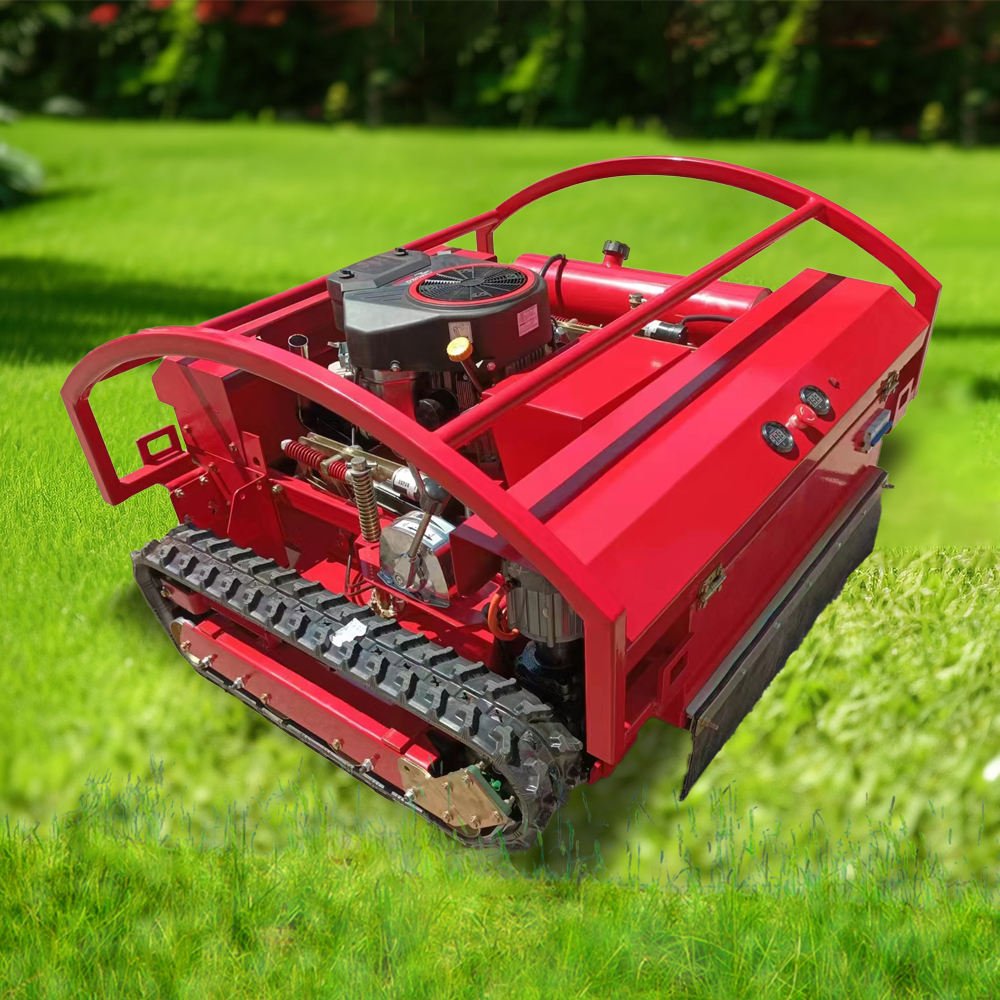

As agricultural mechanization and intelligence evolve rapidly, the remote-controlled lawn mower emerges as an innovative piece of equipment revolutionizing traditional agricultural management. Combining advanced remote-control technology with efficient mowing capabilities, this device offers convenient and high-performance solutions for farmland maintenance, orchard management, pasture trimming, and more.
Farmland Maintenance: For large-scale farms or crop-growing areas, traditional manual mowing is time-consuming and labor-intensive. Remote-controlled lawn mowers can efficiently clear grass, reducing competition between weeds and crops.
Orchard Management: Orchards often have dense trees and complex terrain. Remote-controlled lawn mowers, with their maneuverability and strong obstacle-handling capabilities, can easily tackle mowing tasks while protecting tree roots from damage.
Pasture Trimming: Grasslands in pastures need regular trimming to maintain optimal height, promote regrowth, and support the health of grazing animals. These mowers can autonomously and accurately handle large-scale grass trimming tasks.
Slopes and Hazardous Areas: In areas with steep slopes or challenging environments, such as around reservoirs or dam embankments, remote-controlled lawn mowers provide a safe and stable solution, reducing the risks associated with manual operations.
The application of remote-controlled lawn mowers not only enhances the level of agricultural mechanization but also effectively addresses the issue of labor shortages in rural areas. With the widespread adoption of 5G technology and the promotion of smart agriculture, these mowers are expected to integrate more advanced features, such as autonomous navigation, AI-based weed identification, and data monitoring, providing precise support for agricultural production. Furthermore, they hold vast potential in environmental protection, landscape maintenance, and other fields.
Efficiency and Convenience: Intuitive remote operation allows for fast and efficient grass clearing, significantly saving time and labor costs.
Safety and Reliability: Ideal for hazardous terrains and complex environments, reducing risks associated with manual work.
Energy Efficiency and Eco-Friendliness: Many remote-controlled lawn mowers are electric-powered, consuming less energy and producing no emissions, aligning with the principles of sustainable agriculture.
Flexibility and Versatility: Adjustable cutting heights, speeds, and coverage areas meet a variety of operational needs.
The remote-controlled lawn mower, as an essential component of agricultural modernization, is providing farmers with smarter, more efficient tools for production. It not only boosts productivity but also addresses labor shortages and supports the development of green agriculture. With ongoing technological advancements, remote-controlled lawn mowers are poised to play an increasingly vital role in global agricultural production, laying a solid foundation for the future of smart farming.